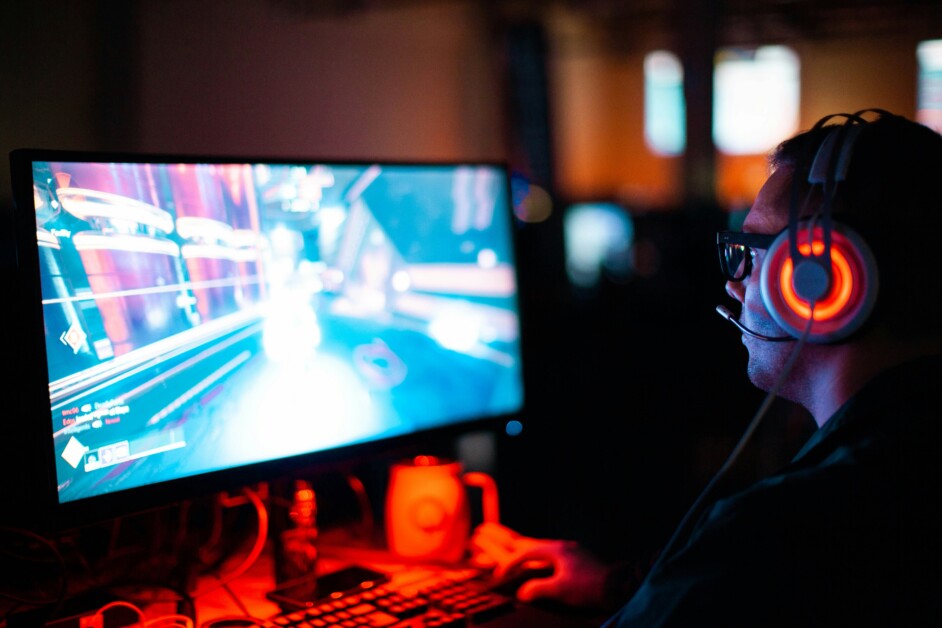Photo by Sean Do on Unsplash
At the forefront of this excitement is the nexus between cryptocurrency and video game development. As the blockchain continues to surge, how we develop, play, and make money from games will change. This isn’t a fly-by-night trend but has major implications for the future of gaming, with some particular tokens emerging as contenders for considerable growth and being considered by many to be the next coins to 1000x.
The Evolution of Gaming through Blockchain
Blockchain technology offers a safe and decentralized environment that allows game developers to offer a new breed of gaming experience. Most models for games today are centralized, meaning the ownership and control of in-game assets and user accounts vest completely with the game developers. This means players can invest substantial time and money into games, only to lose access or face unfair practices from developers.
On the other hand, blockchain grants players actual ownership of game assets in items such as NFTs, representative of a game-changing invention within this domain. Ownership of rare items, characters, or skins within a game by NFTs can be exchanged on numerous markets, offering greater agency for the player to profit from their investment and abilities.
Play-to-Earn Gaming
A fundamental change in gaming concepts has been observed with play-to-earn models, through games, and participants can gain real-world benefits using these models. Games such as “Axie Infinity”, this game shows players how to compete with others in order to achieve in-game objectives and then be rewarded with tokens. The tokens they receive will be tradable against cryptocurrencies, thus giving them a real financial incentive to play the game to the fullest of their abilities.
As more developers adopt the play-to-earn model, a new economic ecosystem begins to emerge and has significant implications for markets that are emerging, where players may be able to generate income just from gaming. As the play-to-earn concept increases, we see a corresponding overflow in interest around specific coins associated with these platforms as many investors are keen to discover the next coins to 1000x, particularly those linked to successful play-to-earn games.
Enhancing Game Development with Smart Contracts
Smart contracts are another extremely vital component that is enabled by blockchain technology and these self-executing contracts facilitate transactions and agreement enforcement without the need for intermediaries. By integrating smart contracts into game development, developers will be able to automate various aspects of the gaming economy which includes reward distribution and governance.
For instance, smart contracts will be able to manage player rewards for completing tasks or achieving milestones effectively and this significantly reduces administrative overhead and improves the gaming experience by providing players with immediate feedback and rewards. Additionally, developers will also benefit from increased transparency which fosters trust between them and the gaming community.
Crowdfunding Opportunities through Token Sales
Token sales mean new possibilities for game developers to raise funds. It allows developers to launch their tokens and sell them in the early stages of game development, building a community of supporters and investors into their game, while generating the much-needed capital to bring their vision into reality.
Many successful games have utilized Initial Coin Offerings (ICOs) to finance their projects, for instance, Animal Crossing and Minecraft-inspired games “My Neighbor Alice” raised substantial funds through its token sale which demonstrates the appetite for blockchain-based games. Investors are increasingly looking for the next coins to 1000x during these crowdfunding opportunities, seeking projects with innovative concepts and strong community backing.
The Community-Driven Model of Game Development
Blockchain technology fosters enriched interactions between developers and gamers which ends up creating a community-driven model. With decentralized governance structures, players may have a say in the game development decisions, such as updates, features, or changes to the economy and this empowers the player, creates engagement, and often leads to better game quality.
Community-driven game development tends to create a consistent and loyal player base that actively contributes to the development of the game. That, in itself, will create a better experience for gaming, whereby growth in both players and tokens should occur organically.
Future Prospects: Cryptographic Gaming Platforms
Several emerging platforms have illustrated how crypto drives innovation in game development. Platforms like Enjin, will focus on empowering game developers with blockchain tools and help promote a thriving ecosystem for crypto gaming.
Enjin also provides developers with the ability to create and manage NFTs seamlessly because its ecosystem enables game creators to integrate blockchain solutions which includes asset creation and management of their games, thus enhancing the overall player experience. Moreover, the use of the Enjin token (ENJ) adds real economic value to the gaming assets that were created on the platform, making it a candidate for those exploring the next coins to 1000x.
Furthermore, the integration of metaverse concepts into gaming is spurring new economic models with games like “Decentraland” which allows players to purchase, build, and monetize virtual land, and tokens used in such platforms are poised for significant growth because more players are showing interest towards these immersive experiences.

Frankie Wilde – is a content writer at various gambling sites. Also, he is a passionate traveler and a great cook. Frankie shares informative articles with the world.






